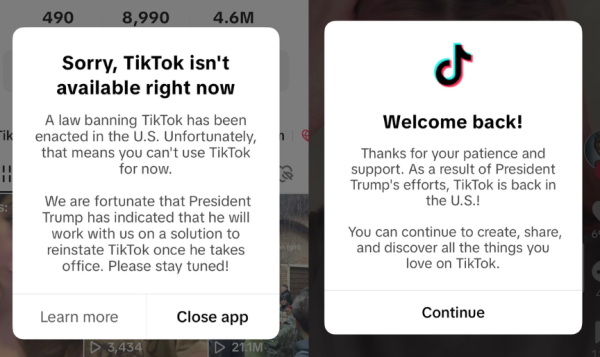How Netflix is changing us and what to do
In an era where having the newest technological advances are the priority, society has evolved to be less active, less attentive and less informed. While it started as a simple DVD-by-mail rental service, Netflix has expanded its capabilities to be one of the top paid-for television streaming services for as little as $7.99 a month. Though this might be great for those who invest in their stock, the service and society’s utilization of it is slowly causing more harm than good.
From day one, Netflix has been expanding its services to supplement more people on various platforms. It got its start in 1997 when Reed Hastings and Marc Randolph, co-founders of the company, partnered to launch the first online movie and DVD rental site, netflix.com. Within two years, a subscription service was introduced offering unlimited DVD rentals for one monthly price. By 2016, Netflix was available to users worldwide.
There is no question that Netflix has been growing rapidly for the past two decades. Something many users may not realize, however, is that just like any other technological advantage, it comes at a price.
One seemingly positive aspect of Netflix is that it has no commercials. Viewers can watch episode after episode without breaks. Though this is great for those edge-of-your-seat moments, it takes away the suspense factor these television shows work so hard to achieve.
It goes beyond just the suspense factor, however. According to Time Health, the more accustomed viewers get to watching episode after episode without taking a break, the weaker their attention span becomes. In a study by the Microsoft Corporation in 2015, the average attention span has shortened from 12 to eight seconds due to the digital lifestyle humans have adapted, and Netflix is a significant factor. As a result of a shorter attention span, productivity can decrease and the ability to retain information is weakened.
Another appeal of Netflix is that it can be streamed from any device. Users can watch television on their TVs, laptops, cell phones, etc. There is never a need to leave the house or even get out of bed in the mornings. It sounds great except for the fact that that encourages laziness and antisocial tendencies.
The idea that technology has sparked laziness in humans is a long-lived argument that will probably never be settled. Advances in technology make the ability to get things done without actually doing anything much easier. Netflix, however, makes the ability to not do any work at all more accessible and appealing to users. According to a study by CordCutting, users spend more than twice as much time binge-watching Netflix shows than they do basic life activities such as socializing or exercising. This can severely impair someone’s social life and even their ability to communicate with others.
Since its start, Netflix has given users the opportunity to disconnect from their everyday lives by renting or streaming their favorite movies and television shows. In the process of doing this, network television is dwindling. According to Huffington Post, 10.5 million households in the United States use some kind of streaming service rather than network television and while that number climbs, T.V. ratings are decreasing.
While this may seem like an insignificant statistic in the digital world, there are things on network television that Netflix can’t deliver to its viewers. For example, Netflix does not have a news division. When users spend all their free time streaming movies and shows, which provide no significant role to a person’s everyday life besides as entertainment, their connection to real life is limited. “Orange is the New Black” becomes more important than the country’s new leader. The season finale of “The Walking Dead” far surpasses any environmental issues. And if Netflix added new episodes of “Stranger Things,” forget it.
With all this being said, Netflix cannot be singularly blamed for this. This all begs the question, what can we do? Humanity’s laziness, antisocial behavior and lack of information cannot be a result of one video streaming service. There are strides users can take to prevent themselves from becoming an average couch potato.
Scheduling out specific times of the day for Netflix can combat these effects. For example, only watching two episodes of a show in the evening and allocating time for other things will prevent these behaviors and can even improve attention spans because viewers won’t be watching three seasons in one day.
For those who are unwilling to sacrifice TV time, try something new. According to a Netflix blog, FeedFlix, one of the least watched categories on Netflix is documentaries at 6.4 percent. These documentaries range from historical, biographical, foreign, political, etc. They give detailed and educational information that can expand viewers’ perception on things and, essentially, give them a whole new outlook on something they may not have known about before.
And since Netflix is accessible on multiple devices, viewers can open their favorite television shows on their cell phones while running on the treadmill or going for a walk. That way, they are keeping themselves active but not having to sacrifice television time.
Netflix has made a huge impact on entertainment in the past decade. While there are benefits to the television streaming service, there are also some long-term downfalls that users should try to avoid. Yes, Netflix can encourage these counterproductive behaviors. But humans can practice the mental strength to overcome them.
Your donation will support the student journalists of Park University. Your contribution will allow us to cover our annual website hosting costs, freeing up other funds for equipment, printing and training.







